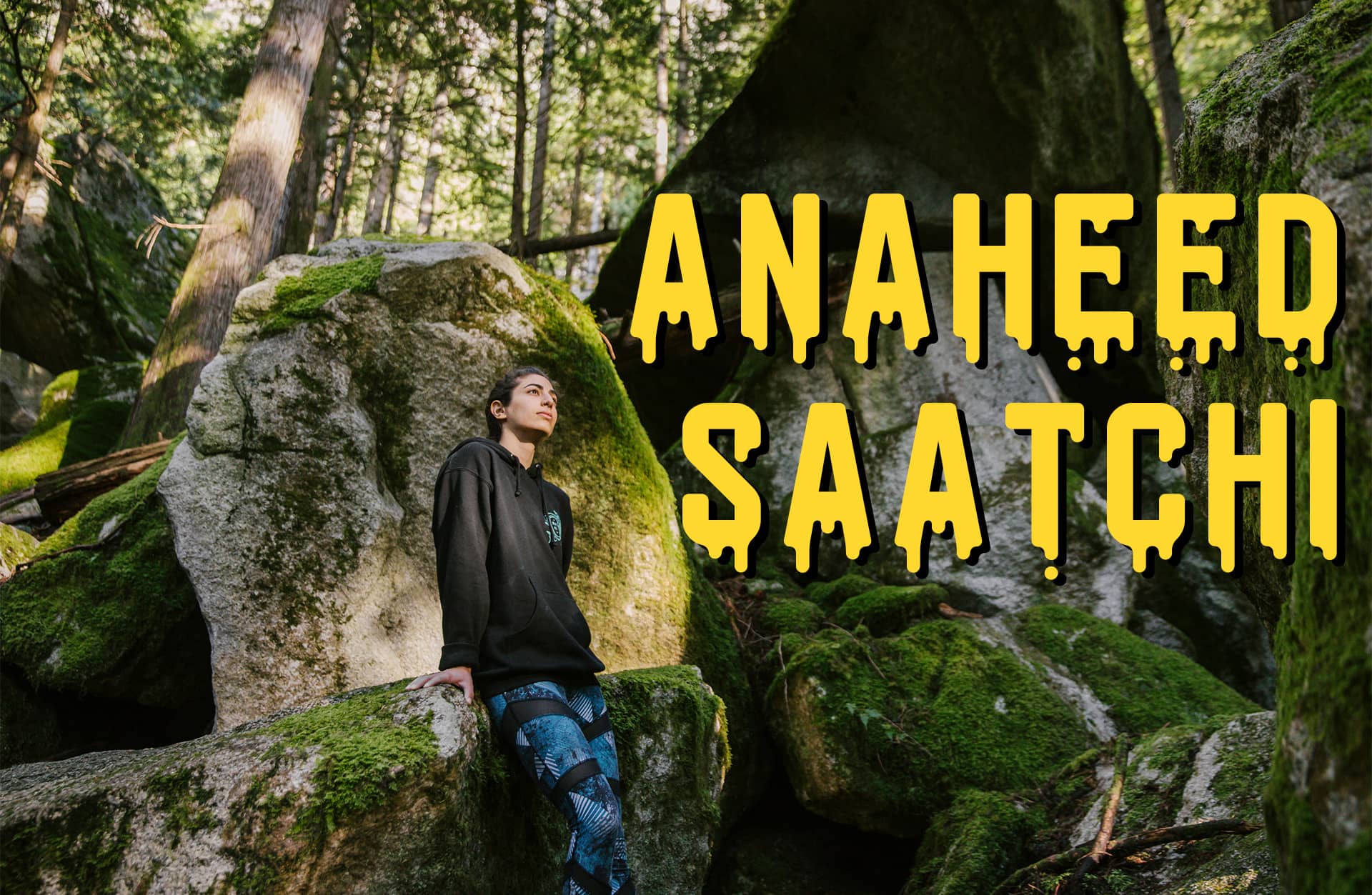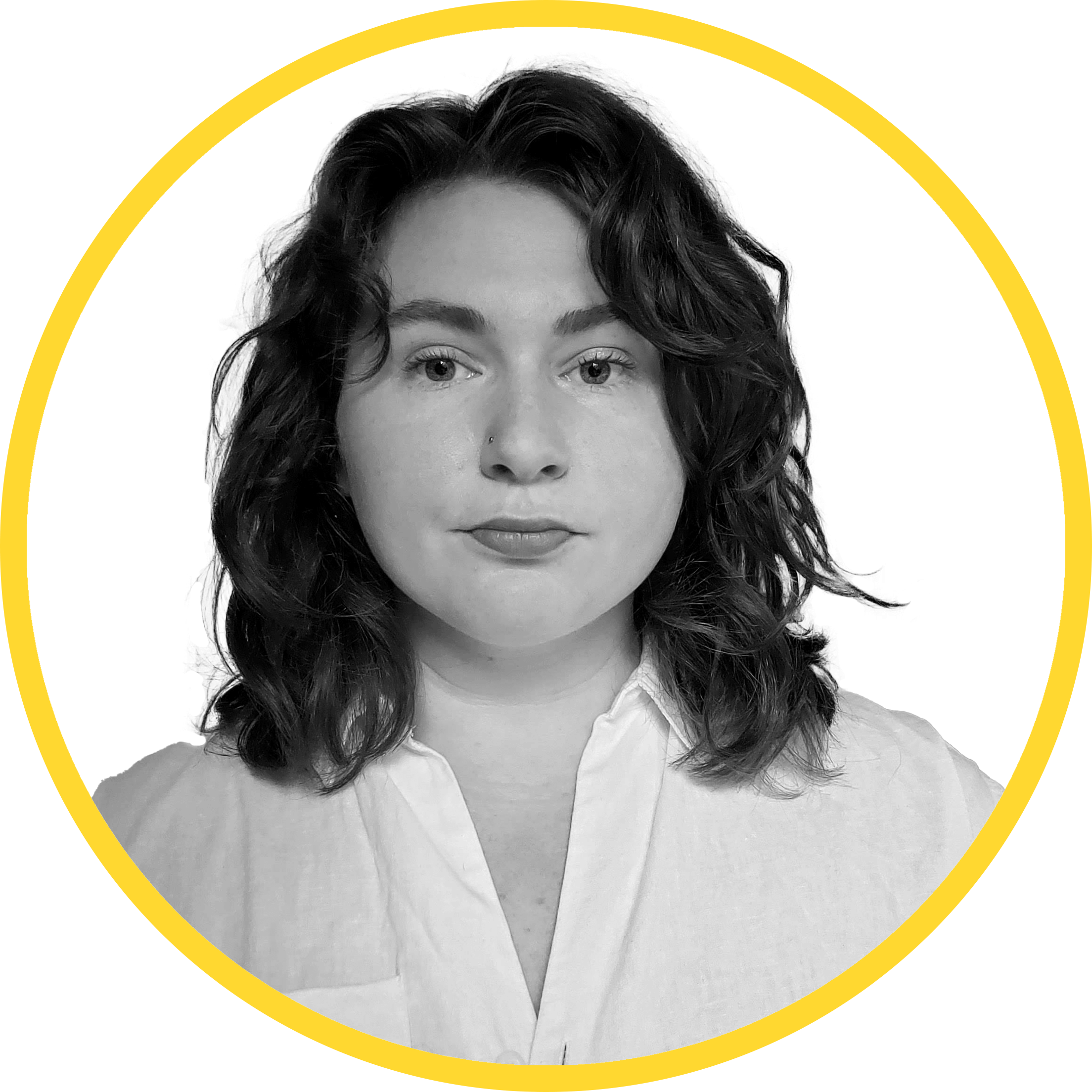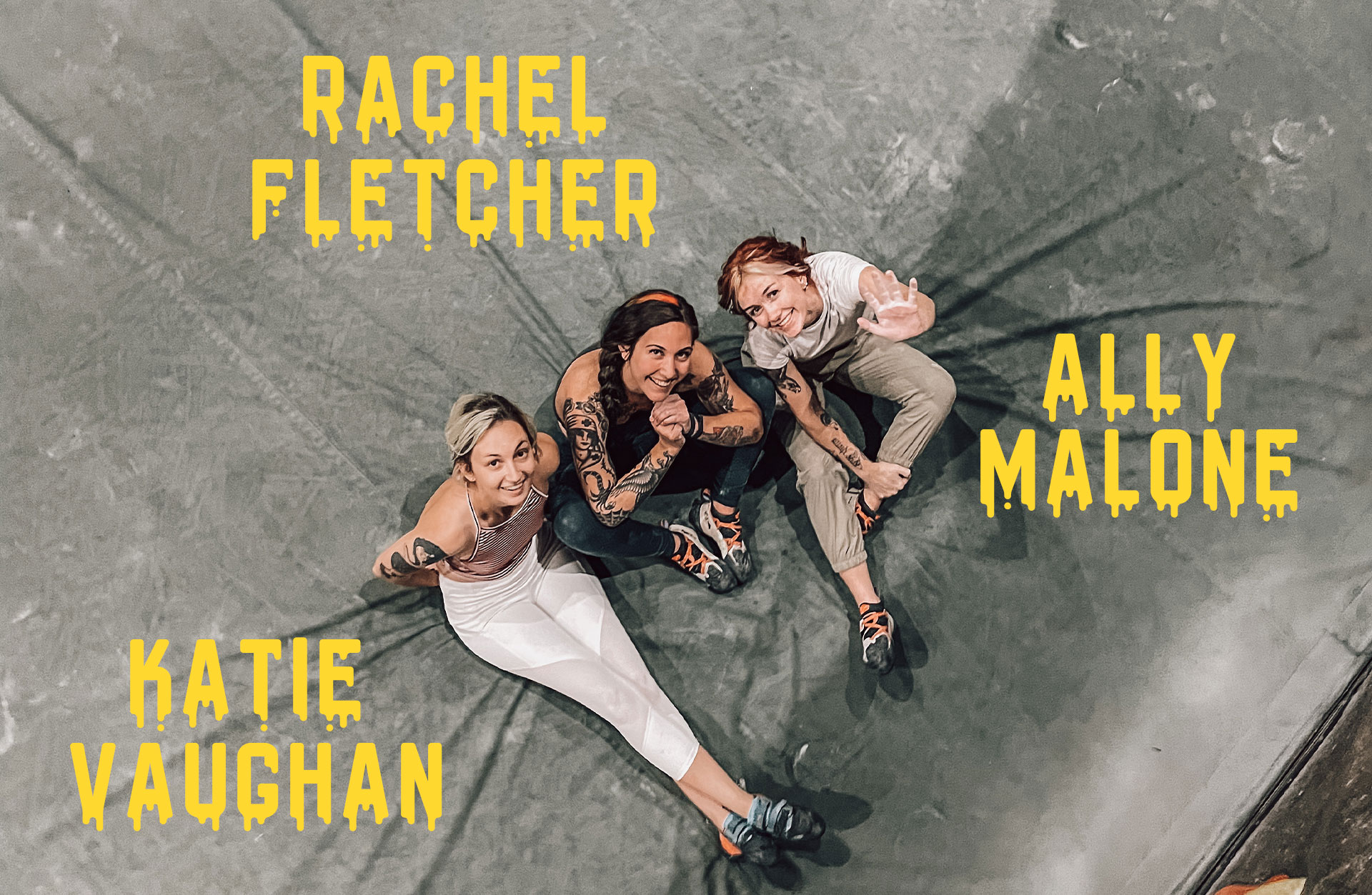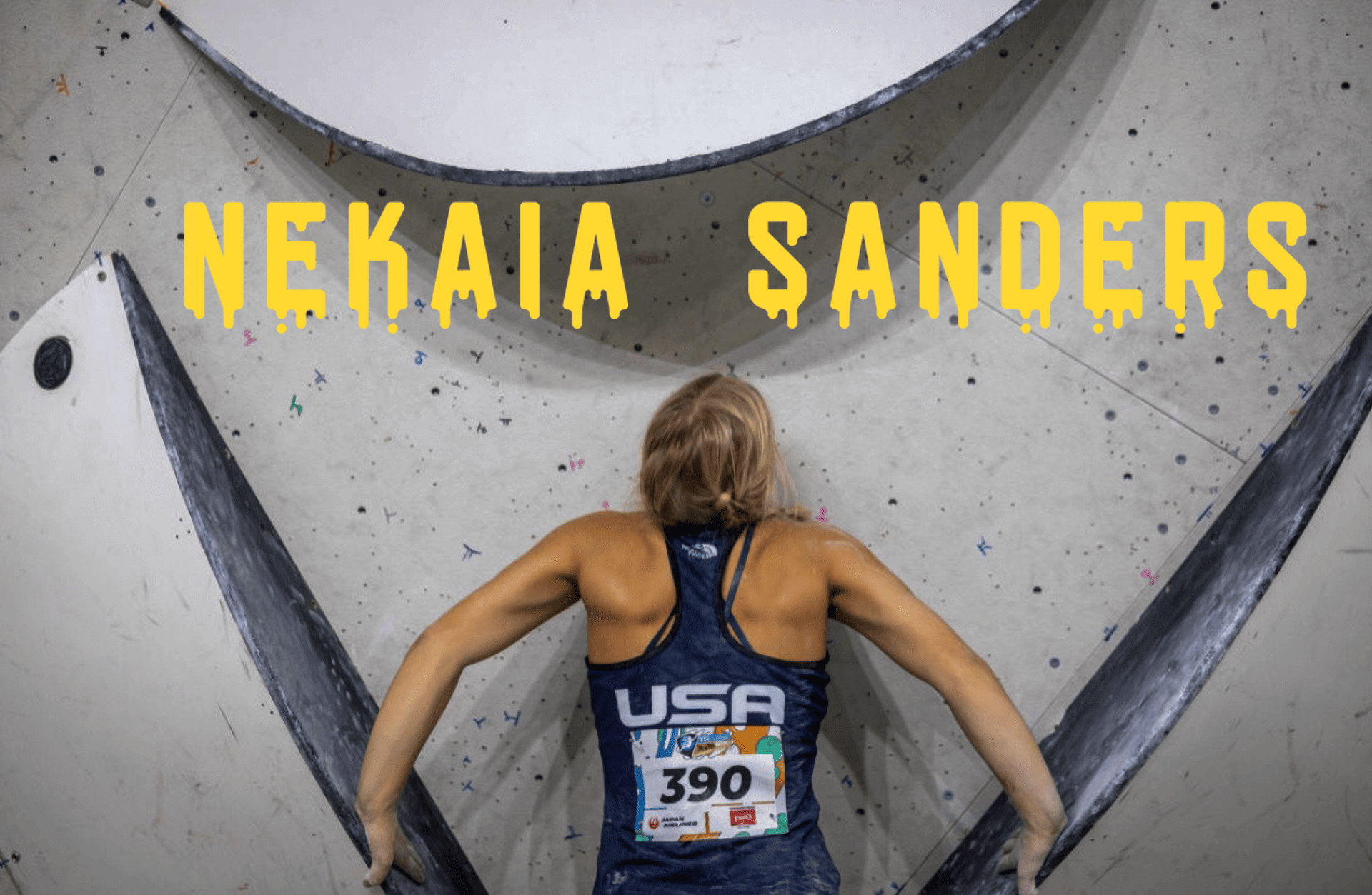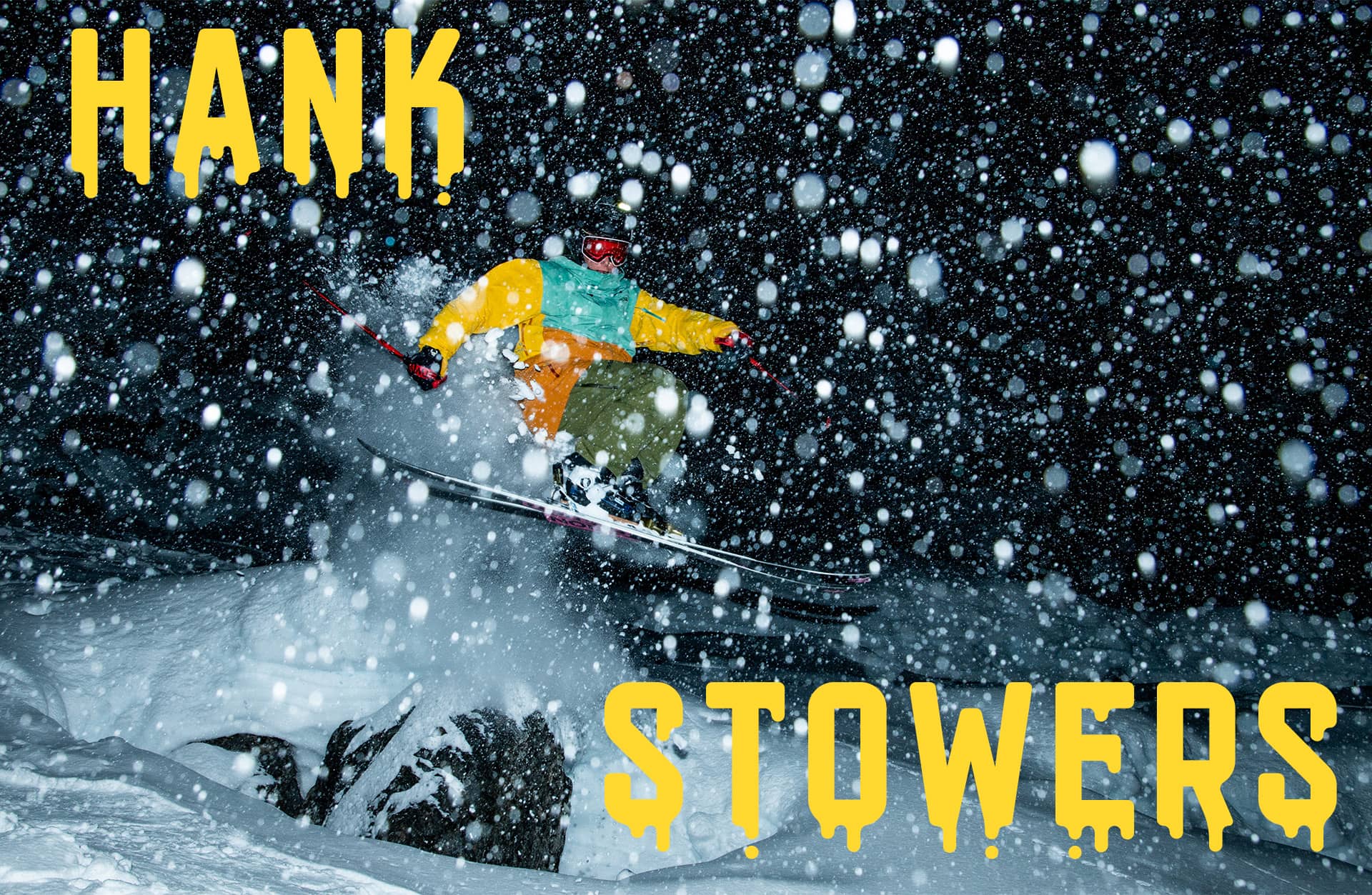CLIMB // 01 SEP 2022
FROM CONQUEST TO COMMUNITY
“Nobody was talking about emotional safety or being trauma-informed in that space, so I just kept being imposed upon by how everybody told me I should be doing things,” said Anaheed Saatchi, founder of BelayAll, a collective of rock climbers who use the pursuit of climbing to hold space for individual and community growth. They continued reflecting on the surmounting mindset that once defined their climbing sessions. “I used to have a freeze response on the wall if I was outside and there was a dynamic move. I remember one day it got so bad that I burst into tears, and I didn’t want to climb it anymore.”
Growing up as a queer first generation child of Iranian parents, Saatchi didn’t see their hometown of Vancouver as a gateway to the “great outdoors”. Instead it was the backdrop to their years spent surviving their queer adolesence. Escaping to Montreal for university, Saatchi had no intention of settling back down in British Columbia (B.C.) post graduation. That was until 2014, when toward the end of September their partner at the time brought Saatchi along with a group of friends to a climbing crag, right up the road in Squamish. “It was the last day of the season, and I just hung out,” recalled Saatchi. “I tried climbing a few things and then I basically slept on a picnic table, snacked, and watched folks. Then I looked out over the view of Squamish and I was like, oh, this is why people live here.”
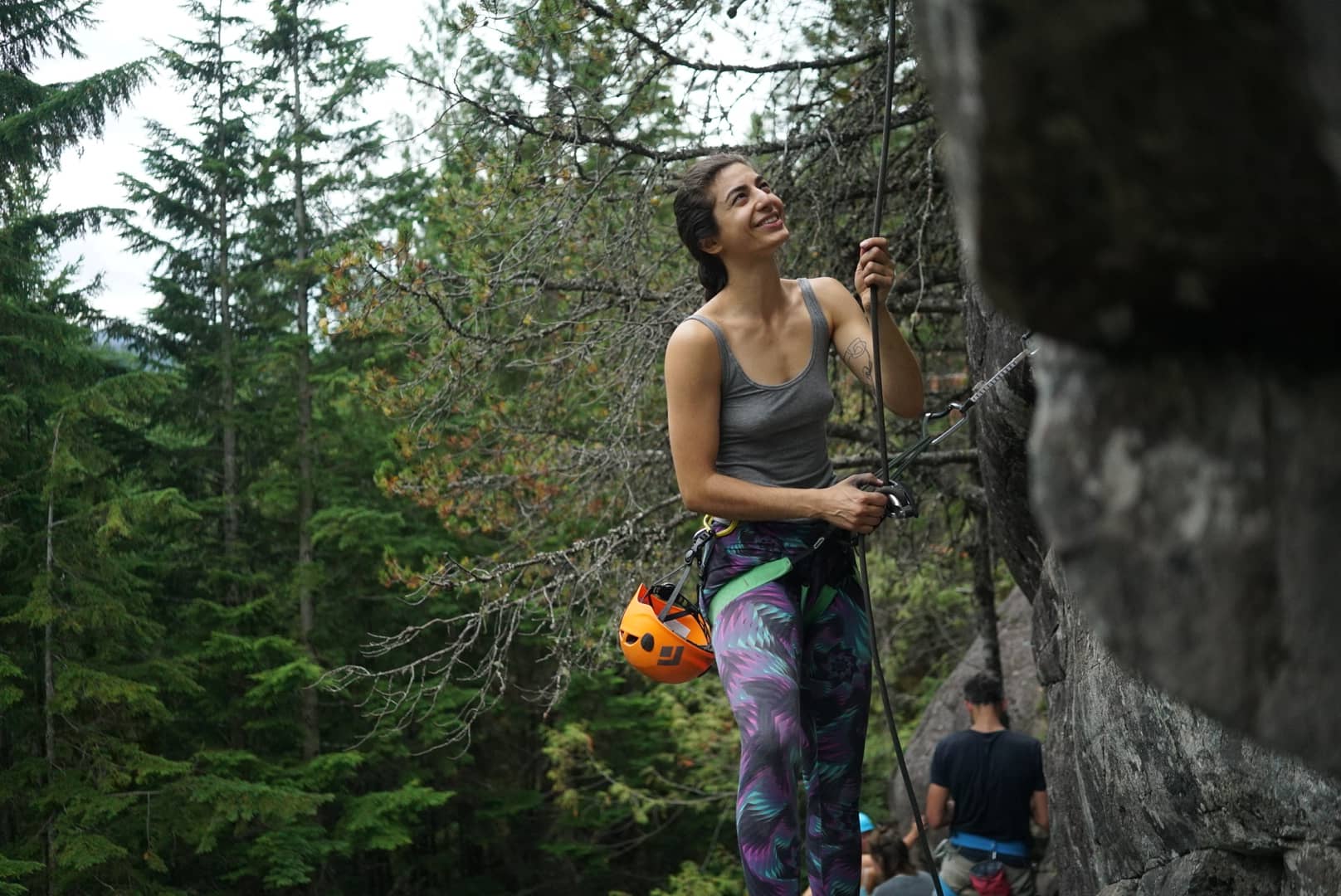
Introduced to the sport on the precipice of the rainy season, Saatchi’s climbing options were limited to local indoor walls. “I hated the gym,” said Saatchi. “It took me five years to start going to the gym out of necessity and finally feeling more entitled to the space at that point. At the gym you’re confronted by a really intense sports culture—and that’s really just toxic masculinity. It was nice to have had a safer entry point, like outdoor climbing, but my ex and I were asking, where are the other queer people? Why does this space suck?”
A climber’s comfort zone is a constantly expanding entity, where pushing grades can hinge on a single out of scope move. It is a mentally and emotionally difficult process to test the edge of one’s limits. In the climbing community, whether in an indoor space or outdoors, the common strategy in these situations is a machismo attitude of ‘just send it’. When faced with these moments, there were times Saatchi would freeze. Coming down from the wall they would turn anger and frustration inward. Why couldn’t they just do it? What barrier stopped them from even trying?
In contrast, as Saatchi grew their climbing friend group to include more queer folks and people of color, they found that those barriers, though not completely removed, were easier to work past. “I noticed that I was thriving with that reassurance and validation that people were showing around me,” explained Saatchi. “The bar for emotional intelligence was set higher and I was able to break down the process of doing a dyno. Because it’s a pretty privileged space to be able to show up and have a high level of confidence.”
This sense of confidence through community became crucial to Saatchi after an accident in 2017 that left them with a serious concussion. During their two year recovery period, Saatchi had to reevaluate their relationship with climbing. “[The concussion] sent me through this whirlwind of actually needing to find my reasons for [climbing]. Because excelling at it, pushing grades, and being strong wasn’t enough. It didn’t motivate me to want to do it. So, I was like, oh, I love this thing when I’m surrounded by awesome people and can really embrace how it’s a whole being exercise. Being present mentally, emotionally, physically, all of that. I think I can still get better without pushing myself through trauma or emotional destitution to excel. If I just give it a little bit more time and a lot more thoughtful conversation, I can get better on my terms.”
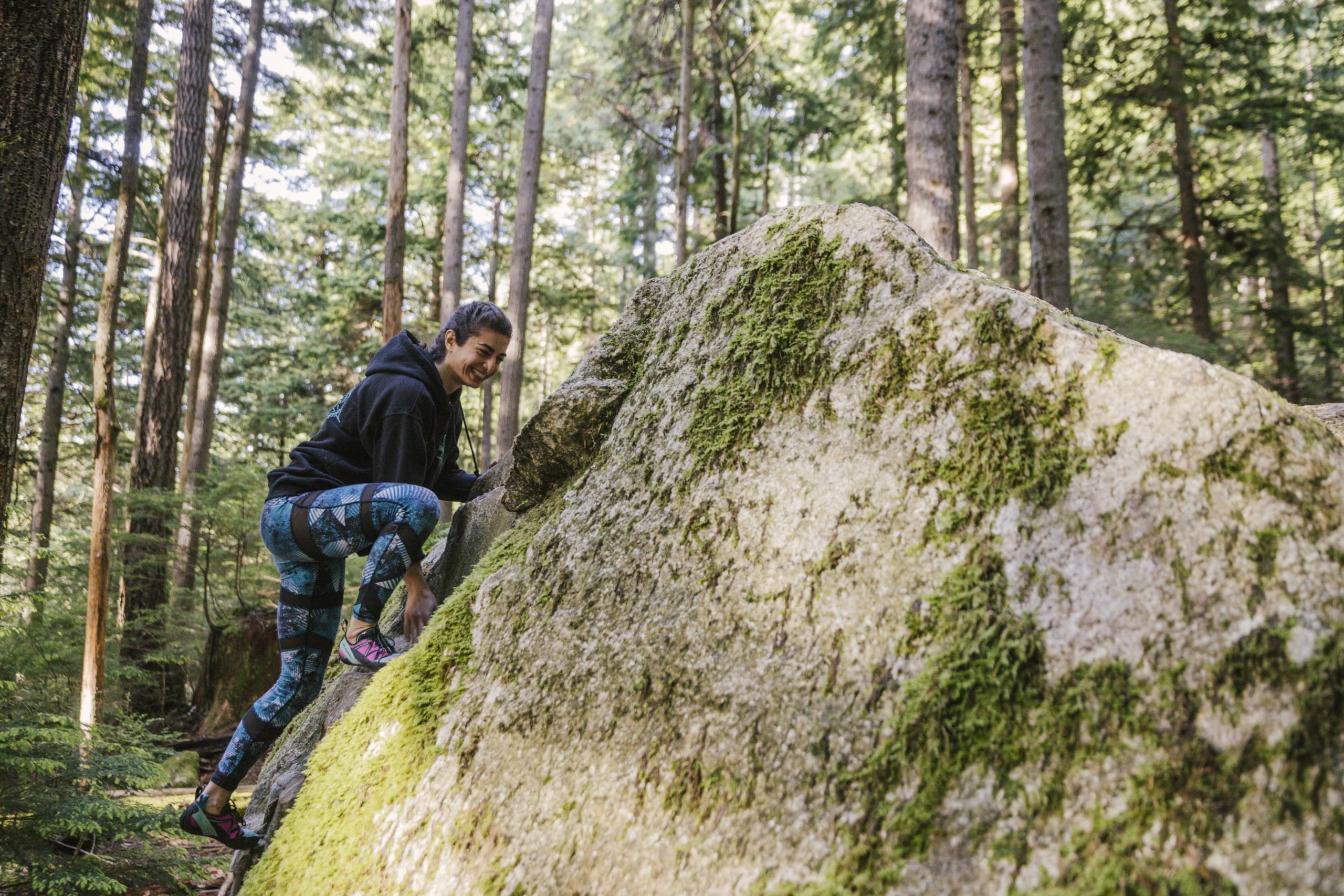
It was from this need for an accommodating community that BelayAll was formed in 2018. Facilitating carpools to the crag, sharing gear, and spreading knowledge, Saatchi not only created a nurturing environment for others but also themself through the organization. Helping Saatchi to reacclimate to the climbing community. “A friend made a really good point [that I] didn’t want to associate climbing with anxiety and I noticed that it had just happened. So, when people were like, ‘let’s go climbing’, I would actually start to feel anxiety in my body but I would go anyway. Whether or not I climbed well, like got to the top without falling, it may or may not have been an enjoyable [experience]. So, I just started noticing all of [those signs] and I started letting go of the need to “succeed” and really focusing on just coming back. I never doubted that I wanted to keep doing it, I just couldn’t keep doing it the way that was being dictated. Then when I started rallying for Belay All I noticed people really resonated with that and so for a long time I was mostly just taking beginners. It was a nice time to lie fallow and let the soil rest.”
Later that same year, Saatchi attended the Color the Crag Festival in Steele, Alabama. “That radicalized my politics and took me into the next stage [of my activism],” explained Saatchi. “I met a whole bunch of other people that were having the exact same systemic barriers that I kept being inhibited by. [That experience] just took the problems I was having from micro to macro. Over the course of a year, BelayAll became much more political and much more intentional.”
The early history of recreational climbing in North America was defined by white cis-men over half a century ago and continues to ring loud and clear today. As recently as 2020, Mountain Project, a member driven online resource for climbing routes, was questioned for their choice of allowing offensive route names on their site. Members were outraged at the notion of removing these names, favoring the honor of the first ascensionist over the marginalized groups they degraded. In the States, when driving out to a rural crag, it is not uncommon to pass multiple confederate or “Don’t Tread on Me” flags. For a queer climber of color it can be difficult to feel like they belong in the outdoors, in any form, when both intergenerational trauma and current culture say otherwise.
“People will immediately want to sugarcoat and be like, well, [climbing culture] is better than it’s ever been in these ways,” explained Saatchi. “We’ve taken these tiny steps, and within that system, I think that’s really the only way change is possible because you have to work through all of this fragility. So, people who have a fuck-ton of privilege don’t necessarily know that they do, and then they’re super fragile about it. The biggest thing that I just come to accept is that no one’s that special in how they’re reacting to anything anymore. Nobody wants to be rejected and that’s just fragility that folks need to work through. I have the mindset that if something is from colonialism or if something is rooted in something bad, it’s never going to be good, but you can practice harm reduction.”
For BelayAll, this shift in purpose prioritized creating space for intersectional climbers. As the organization transformed, Saatchi found that people were looking to them to be a mouthpiece for issues in the outdoor industry. So they began to write.
“I always wanted to be a writer,” smiled Saatchi. “I am an accidental journalist with a lot of reverence for journalists. That doesn’t necessarily mean people who have gone to journalism school, it means people who really do the digging, tell really phenomenal stories and connect with the people whose stories they’re telling.”
Working as a freelance writer for Melanin Base Camp, Saatchi wasted no time in dissecting the climbing industry. “I have an agenda when I write what I’m writing,” laughed Saatchi. “Which I think is fine, and there’s no such thing as unbiased journalism.” However, constantly defending one’s identity and educating others is emotionally laborious. It is an easy place to get overwhelmed. “I think a combination of having a really good community around me that don’t give a fuck about climbing and who are my teachers, my friends, and my chosen family,” said Saatchi, explaining how they find the necessary respite. “It’s okay to have your feelings and it’s okay to be angry, all of those things are just constantly being validated and shared. I think what became very apparent to me in 2020 was the huge solicitation of labor from marginalized folks to better white people and straight men, that to me was “The Simulation”. It helped discern that my work with BelayAll isn’t that, it’s in community. That brought me a sense of relief and still does.”
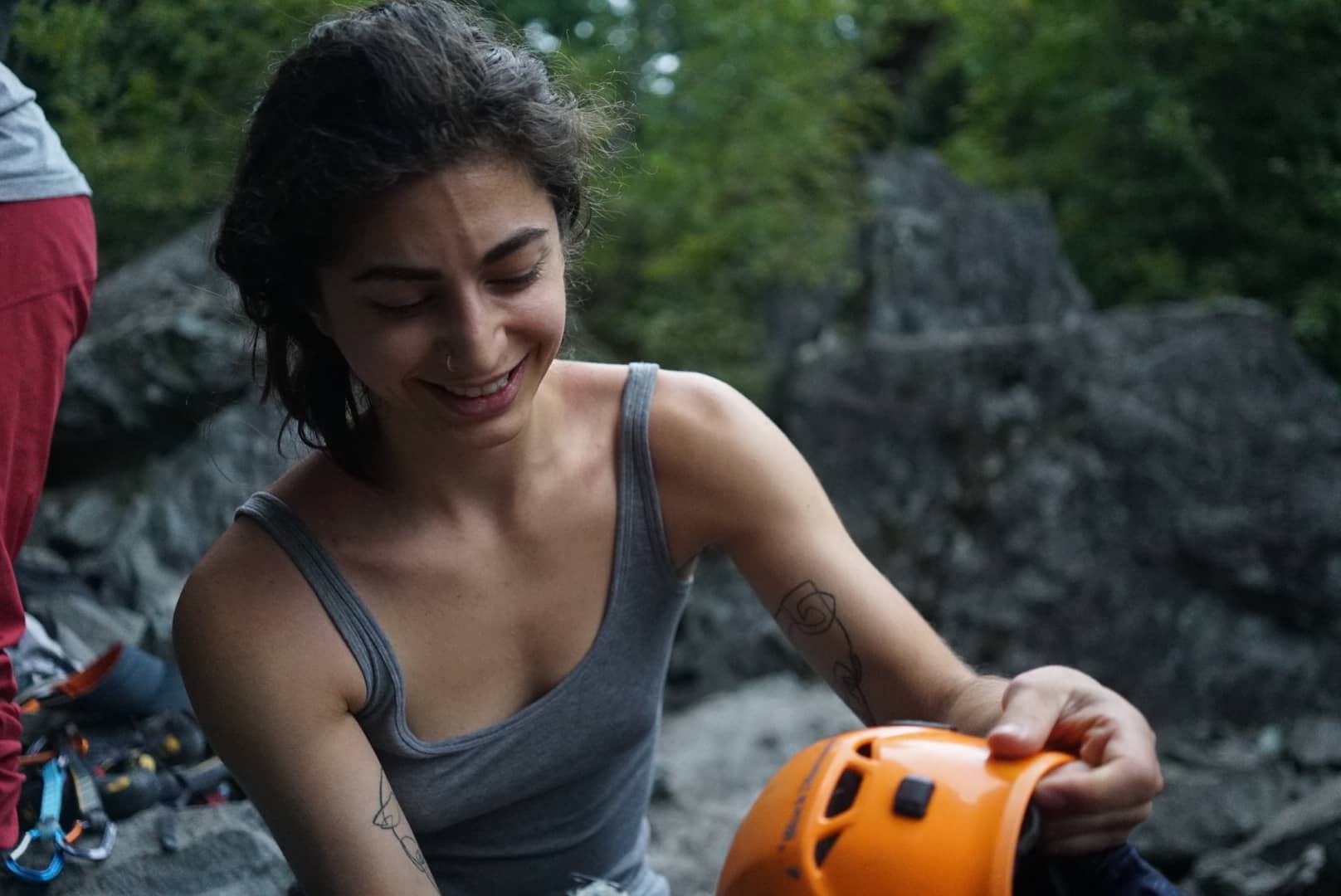
Looking forward, Saatchi anticipates a period of growth for BelayAll as they face a series of decisions. “What do we want to put on that feels good for us?” said Saatchi. “I think that’s growing into deeper questions because we’ve expanded and a lot of different kinds of [people] are showing up. We’re figuring out how to center joy and then also teach the hard skills and they clash sometimes. Yes, you can shout out for politics from the rooftops and then at the same time you don’t want to take it too seriously.”
Whether connecting with others through climbing, or other hobbies such as their recent dive into skateboarding, Saatchi finds strength in the communities they foster. “My climbing has definitely changed,” said Saatchi, reflecting on their nearly eight years with the sport. “I really like the Lor Sabourin approach which is just focus on the mental game and your body will ensue. Not to summarize their brilliance in one dorky sentence, but that person’s rad and more and more folks are showing up in my life that embrace that idea as well. It’s very fun and very awesome to be in that community and to climb with folks who are at all different places and maybe they don’t want to climb, maybe they are stoked to belay. It’s really great to share space with everyone.”
